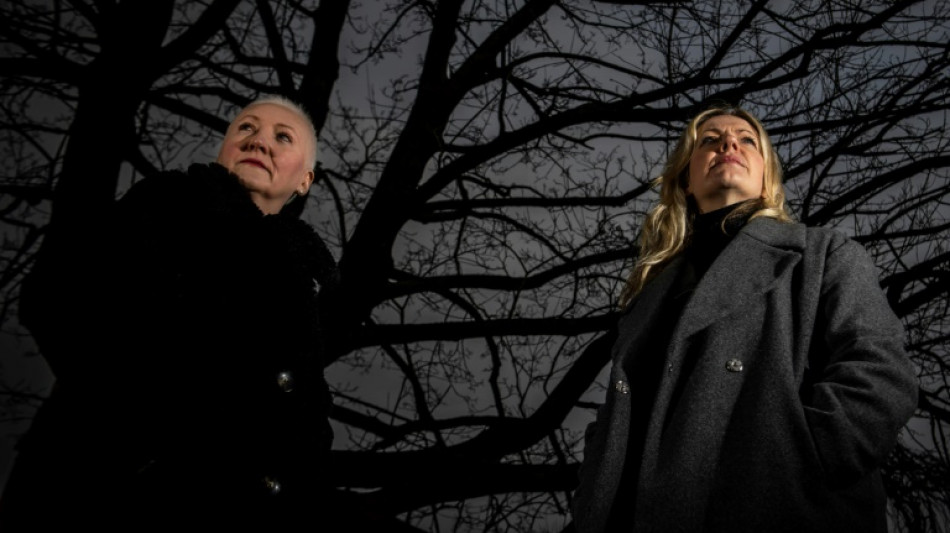
-
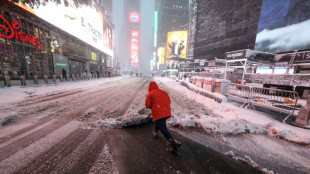 Snowstorm blankets US northeast as New York sees travel ban
Snowstorm blankets US northeast as New York sees travel ban
-
Healthcare crisis looms over Greenland's isolated villages
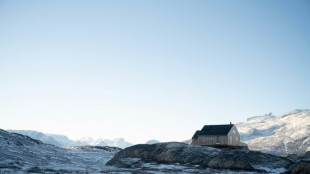
-
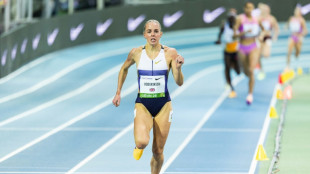 Hodgkinson says breaking 800m record would put her among athletics' greatest
Hodgkinson says breaking 800m record would put her among athletics' greatest
-
Two Russian security personnel were on board France-seized tanker: sources
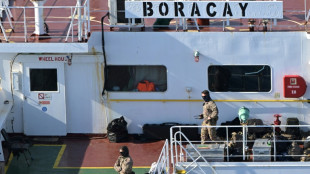
-
 EU puts US trade deal on ice after Supreme Court ruling
EU puts US trade deal on ice after Supreme Court ruling
-
Hetmyer blasts 85 as West Indies pile up 254-6 against Zimbabwe

-
 Canada PM heads to Asia seeking new trade partners as US ties fray
Canada PM heads to Asia seeking new trade partners as US ties fray
-
South Africa accepts Trump's new US ambassador
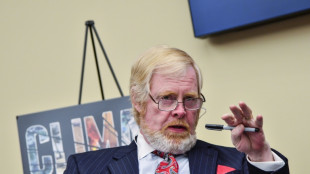
-
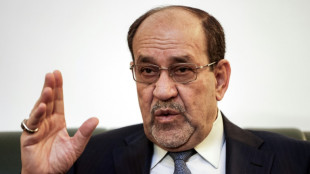 Iraq's Maliki defends PM candidacy, seeks to reassure US
Iraq's Maliki defends PM candidacy, seeks to reassure US
-
UEFA suspend Benfica's Prestianni after alleged racist abuse

-
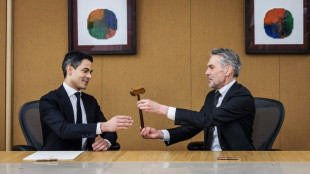 Jetten sworn in as youngest-ever Dutch PM
Jetten sworn in as youngest-ever Dutch PM
-
Italy's Enel to invest 20bn euros in renewables by 2028
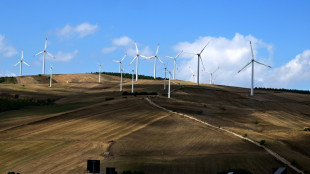
-
 BBC apologises for 'involuntary' Tourette's racial slur during BAFTA awards
BBC apologises for 'involuntary' Tourette's racial slur during BAFTA awards
-
Kristen Bell returns to host glitzy Actor Awards in Hollywood
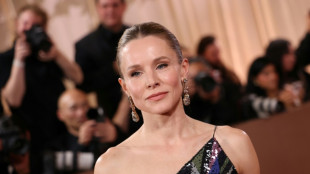
-
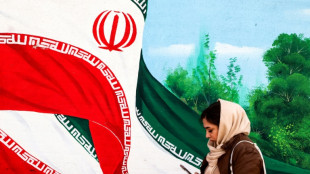 Iran says would respond 'ferociously' to any US attack
Iran says would respond 'ferociously' to any US attack
-
Venezuelan foreign minister demands 'immediate release' of Maduro
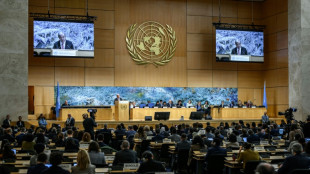
-
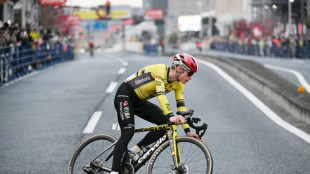 Dane Vingegaard to start season at Paris-Nice in March
Dane Vingegaard to start season at Paris-Nice in March
-
Australia PM backs removing UK's Andrew from line of succession
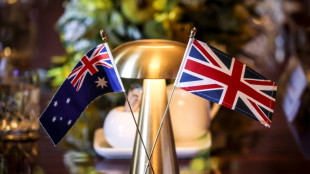
-
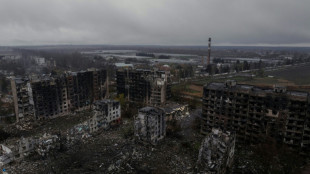 Where do Ukraine and Russia stand after four years of war?
Where do Ukraine and Russia stand after four years of war?
-
Police investigating racist abuse of Premier League quartet

-
 Fiji to start Nations Championship at 'home' to Wales in Cardiff
Fiji to start Nations Championship at 'home' to Wales in Cardiff
-
EU lawmakers to put US trade deal on hold after Supreme Court ruling

-
 Rubio to attend Caribbean summit as US presses Venezuela, Cuba
Rubio to attend Caribbean summit as US presses Venezuela, Cuba
-
'Ugly' England aim to spin their way to T20 World Cup semi-finals

-
 Nigeria paid Boko Haram ransom for kidnapped pupils: intel sources
Nigeria paid Boko Haram ransom for kidnapped pupils: intel sources
-
Tudor says Tottenham can still beat the drop despite Arsenal loss

-
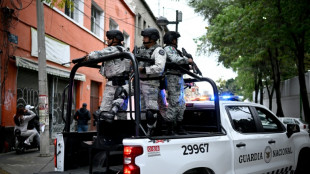 Violence sweeps Mexico after most-wanted drug cartel leader killed
Violence sweeps Mexico after most-wanted drug cartel leader killed
-
France giant Meafou capable of being 'world's best' lock

-
 Stocks diverge, dollar down over Trump tariffs uncertainty
Stocks diverge, dollar down over Trump tariffs uncertainty
-
World champions South Africa announce eight home Tests for 2026/27

-
 Liverpool boss Slot encouraged by Mac Allister's return to form
Liverpool boss Slot encouraged by Mac Allister's return to form
-
India replaces British architect statue with independence hero
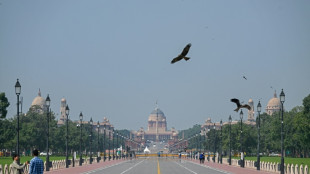
-
 Pakistan warn England's flaky batting to expect a trial by spin
Pakistan warn England's flaky batting to expect a trial by spin
-
Philippines' Duterte authorised murders, ICC told as hearings open

-
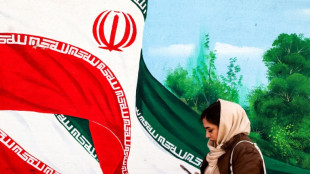 Iran says would respond 'ferociously' to any US attack, even limited strikes
Iran says would respond 'ferociously' to any US attack, even limited strikes
-
New Dutch government sworn in under centrist Jetten
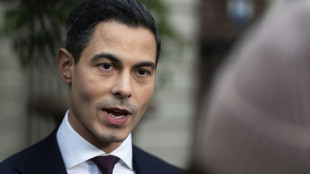
-
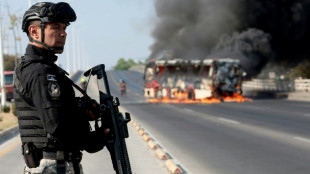 What the future holds for the CJNG cartel after leader killed
What the future holds for the CJNG cartel after leader killed
-
ICC kicks off pre-trial hearing over Philippines' Duterte

-
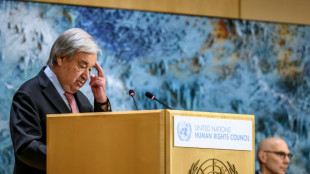 UN chief decries global rise of 'rule of force'
UN chief decries global rise of 'rule of force'
-
Nemesio Oseguera, the brutal Mexican drug lord known as 'El Mencho'
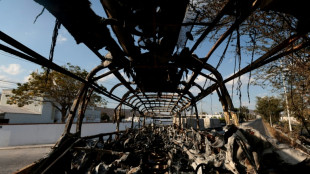
-
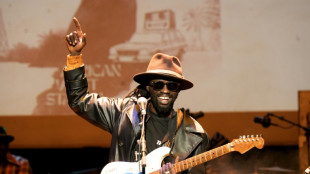 Senegal's Sahad, radiant champion of 'musical pan-Africanism'
Senegal's Sahad, radiant champion of 'musical pan-Africanism'
-
New York orders citywide travel ban as major storm hits US
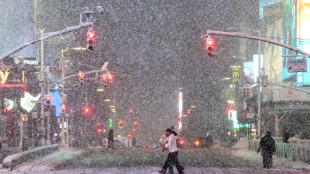
-
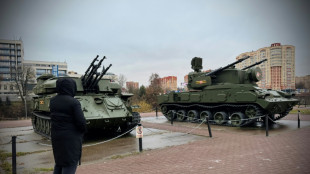 'Considered a traitor': Life of an anti-war Ukrainian in Russia
'Considered a traitor': Life of an anti-war Ukrainian in Russia
-
South Korea and Brazil sign deals on K-beauty, trade
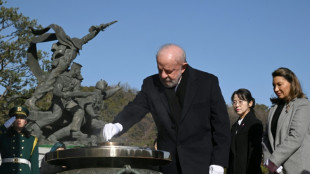
-
 Zimbabwe farmers seek US help over long-promised payouts
Zimbabwe farmers seek US help over long-promised payouts
-
Hong Kong appeals court upholds jailing of 12 democracy campaigners
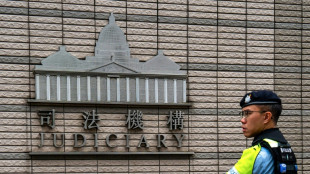
-
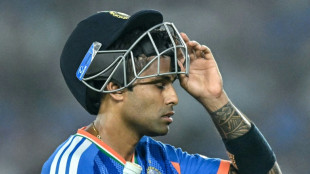 India battle for World Cup survival after 'messing up on grand scale'
India battle for World Cup survival after 'messing up on grand scale'
-
'I will go': Bengalis in Pakistan hope for family reunions
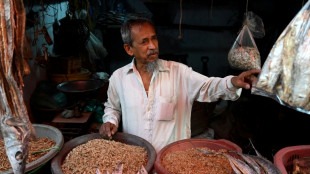
-
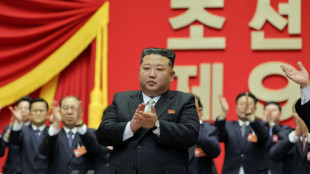 North Korea touts nuclear advances as Kim re-chosen to lead ruling party
North Korea touts nuclear advances as Kim re-chosen to lead ruling party
-
South Korea protests 'Victory' banner hung from Russian embassy
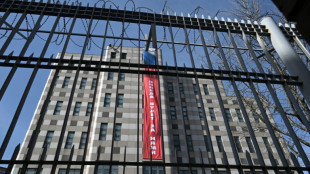

Killed for witchcraft, Scotland's forgotten victims find a voice
Claire Mitchell and Zoe Venditozzi are fighting for pardons for all those executed for witchcraft in Scotland, the vast majority of whom were women, and for a memorial to those forgotten by history.
"Between the 16th and 18th century in Scotland, approximately 4,000 people were accused of witchcraft," explained Mitchell, a lawyer who founded the campaign group Witches of Scotland.
In total, more than 2,500 people were executed for witchcraft in Scotland, four-fifths of them women. They were mostly strangled and then burned, after making confessions that were often extracted under torture.
"People would take turns interviewing them, keep them awake for days and days and days, and ask them about witchcraft," Mitchell told AFP at a graveyard in the city of Dundee.
The victims were forced to confess that "they were dancing with the devil, having sex with the devil", she added.
"And those confessions were used by the courts in Scotland... to prosecute these women for witchcraft."
They are recognised in the windblown 16th-century cemetery by a small column nicknamed the "Witches' Stone".
Passers-by often leave flower petals and coins as a tribute to those executed who include Grissel Jaffray, strangled and burnt in 1669.
In a city centre street, a mosaic depicting a cone of flames commemorates Jaffray, the woman known as "the last witch of Dundee".
- Double toil and trouble -
Mitchell founded Witches of Scotland on March 8, 2020 -- International Women's Rights Day -- after discovering the harrowing consequences of the Witchcraft Act.
This 1563 law approved capital punishment for those guilty of witchcraft and was in force until 1736.
Witch hunts were enthusiastically promoted by Scotland's King James VI, who became also king James I of England in 1603.
His obsession found voice in William Shakespeare's "Scottish play", featuring three witches who lead Macbeth to his doom.
Mitchell's association is calling for three things: a pardon for all those convicted of witchcraft, an official apology from the authorities, and a national monument to remember the victims.
Co-campaigner Zoe Venditozzi, 46, said that she knew "nothing" about the witch hunts until recently despite growing up in Fife, a hotbed of executions.
She discovered that "anyone could be accused" and that it was "generally ordinary people, often poor people" who could not stand up for themselves or were seen as being odd in some way.
"In those days, people believed really, really strongly in the devil," she said, and that women were seen as "vessels" that the devil could manipulate.
- The devil's work -
Natalie Don, an MP with the Scottish National Party, the pro-independence party that holds power in Edinburgh, intends to introduce a bill in the Scottish Parliament to obtain a pardon for all those convicted.
"In several countries across the world people are still accused and punished for practising witchcraft," she told AFP.
"Scotland should lead the way in acknowledging the horrors of our past and ensure that these people do not go down in history as criminals."
Scotland was particularly prone to witch hunts, according to Julian Goodare, emeritus professor of history at Edinburgh University, who has overseen the creation of a database to record them.
With 2,500 people executed in a population of two million, the rate was around five times higher than the average in Europe, he said at Edinburgh Castle, the site of many public executions.
It was driven in part by Scotland's drift away from the Catholic Church during the Protestant Reformation, which saw a rampant "fear of ungodliness", and accelerated after an alleged plot to bewitch King James in the 1590s.
He also favours a monument to this history: "There's nothing we can do to change the past, but we can learn from it."
H.Darwish--SF-PST



